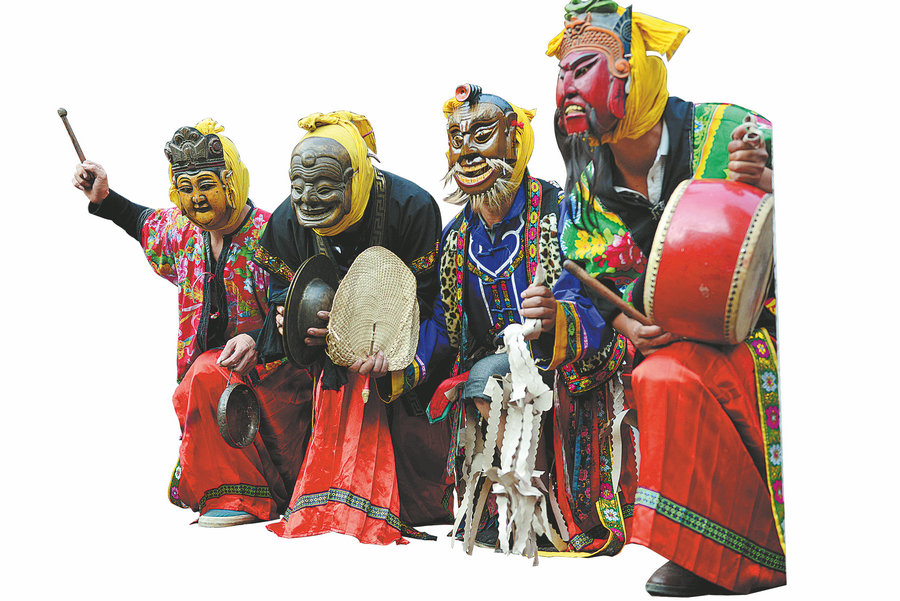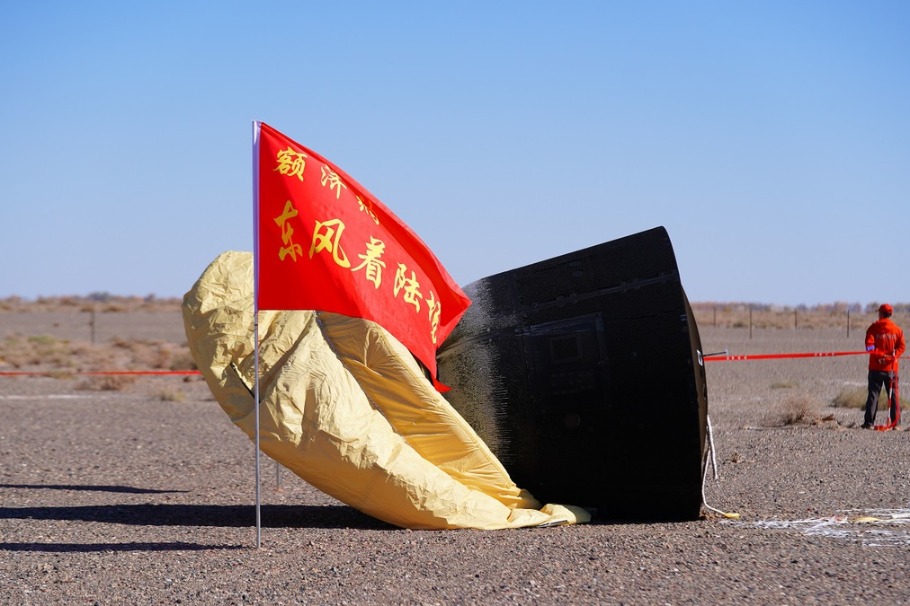Tongren is home to Nuo experiences


Ancient and enigmatic performances add an air of mystery to life around Fanjing Mountain, Cheng Yuezhu and Yang Jun report.
Tongren, Guizhou province, is home to a diverse number of ethnic groups and one enigmatic cultural element that is shared by many of them — Nuo — imbues the natural sublimity of Fanjing Mountain with a sense of mystery.
Nuo culture encapsulates a range of cultural practices. It can be a form of dance, an opera style, a ritual, or even acrobatic performances, passed down since ancient times by people hoping to invite good fortune into their lives while seeking to ward off evil spirits.
"Relevant activities can be traced back to the Shang Dynasty (c.16th century-11th century BC). After thousands of years, some of these activities developed into the Nuo opera art form, known as a 'living fossil' of traditional Chinese opera," expert Tang Zhizhou says.
Tang is the director of Guizhou Nuo Culture Museum in Tongren, the only museum in China with a focus on the folk cultural phenomenon.
Since 2009, he has been working to preserve Nuo culture, and, in recent years, he has completed a major project to film local Nuo opera performances to be included in the museum's collection.
"Nuo culture is a grand concept, and in Tongren, it actually only refers to Nuotang Opera that exists in the northeastern area of Guizhou, with Fanjing Mountain at the center," Tang says.
"Nuotang Opera is one of Guizhou's four cultural forms related to Nuo. It is ancient and well-preserved, and also includes all three elements — the ritual, the opera and the stunts. Nuotang Opera's comprehensiveness differentiates itself from other Nuo opera styles."
























